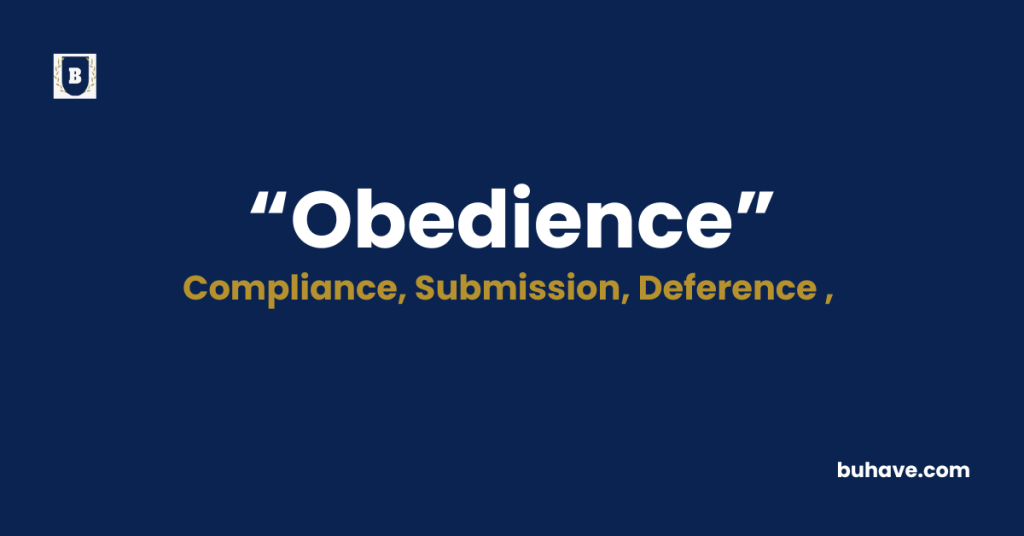The word Obedience (Noun) refers to the act of following instructions, rules, or commands from an authority figure. In this guide, you’ll learn the full definition, synonyms, antonyms, etymology, and real-life examples of how to use Obedience correctly in sentences.
Obedience Explained in Depth
A complete and detailed guide to the word Obedience including meaning, definition, examples, etymology, synonyms, and antonyms.
Meanings of Obedience
Obedience means the act or quality of complying with the directions, rules, or wishes of someone in authority. It often reflects respect, discipline, and social order across various environments like homes, schools, or institutions.
Definition
Obedience refers to the practice of listening to and following the directives of a person or body in a position of authority. It is commonly associated with children obeying parents, soldiers following commands, or citizens complying with laws. This behavior is not only about following orders; it also involves understanding roles within structured systems. In many traditions, obedience is seen as a moral or religious virtue. However, when blind or unquestioned, it can raise ethical concerns. Obedience often functions as a mechanism for group stability, promoting cooperation and responsibility. In psychology, obedience is studied to understand how individuals respond to authority figures. The concept may have positive or negative implications depending on how it is practiced and perceived in context.
Etymology
The word “obedience” originates from the Latin term oboedientia, which comes from oboedire—a combination of ob- meaning “toward” and audire meaning “to hear.” It literally means “to listen toward” or “pay attention to.” The word passed into Old French as obedience and entered Middle English by the 13th century. Originally, it emphasized listening attentively to those in power, especially within religious and royal frameworks. . Over centuries, its use expanded to educational, military, and legal domains. Today, the word still reflects this sense of dutiful behavior, whether voluntary or enforced. While its tone can be neutral or even virtuous, it also invites questions about personal agency and moral judgment in modern societies.
Example Sentences
- The teacher praised the child for their consistent obedience in class.
- Obedience to the law is essential for a peaceful society.
- Religious orders often require vows of poverty, chastity, and obedience.
Obedience Synonyms
- Compliance
- Submission
- Conformity
- Deference
- Respect
- Adherence
- Subordination
- Observance
- Allegiance
- Loyalty
Obedience Antonyms
- Disobedience
- Rebellion
- Defiance
- Resistance
- Independence
- Nonconformity
- Opposition
- Refusal
- Insubordination
- Autonomy
FAQs about Obedience
Here are some frequently asked questions (FAQs) about the word “Obedience”
1. What does obedience mean in daily life?
It means doing what is asked or required by someone in a position of authority, such as a parent, teacher, or leader.
2. Is obedience always a positive trait?
Not always. It can be positive in structured environments, but harmful if it leads to following unethical commands.
3. How is obedience taught?
It is often taught through rules, reinforcement, and modeling respectful behavior from an early age.
4. Is obedience the same as respect?
No. Obedience is about action; respect is an attitude. Both can exist independently or together.
5. Can obedience be voluntary?
Yes. Many people obey willingly, especially when they trust the authority or see the value in the rules.

















